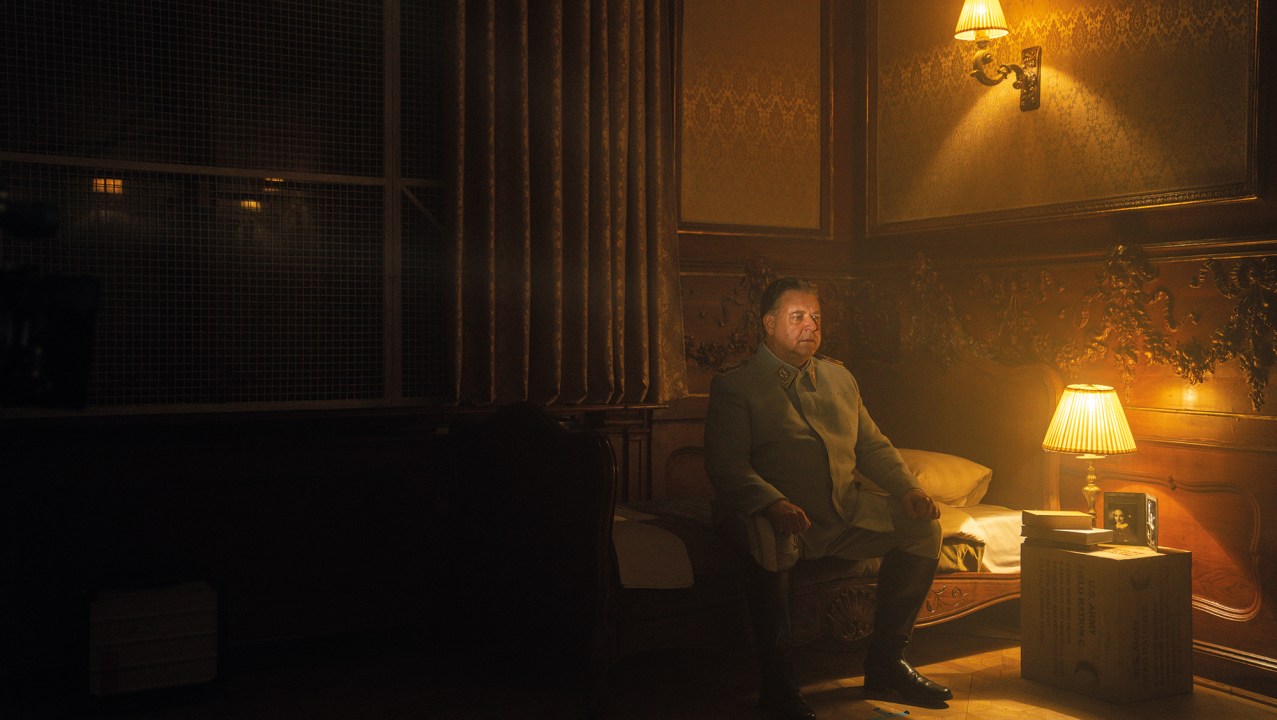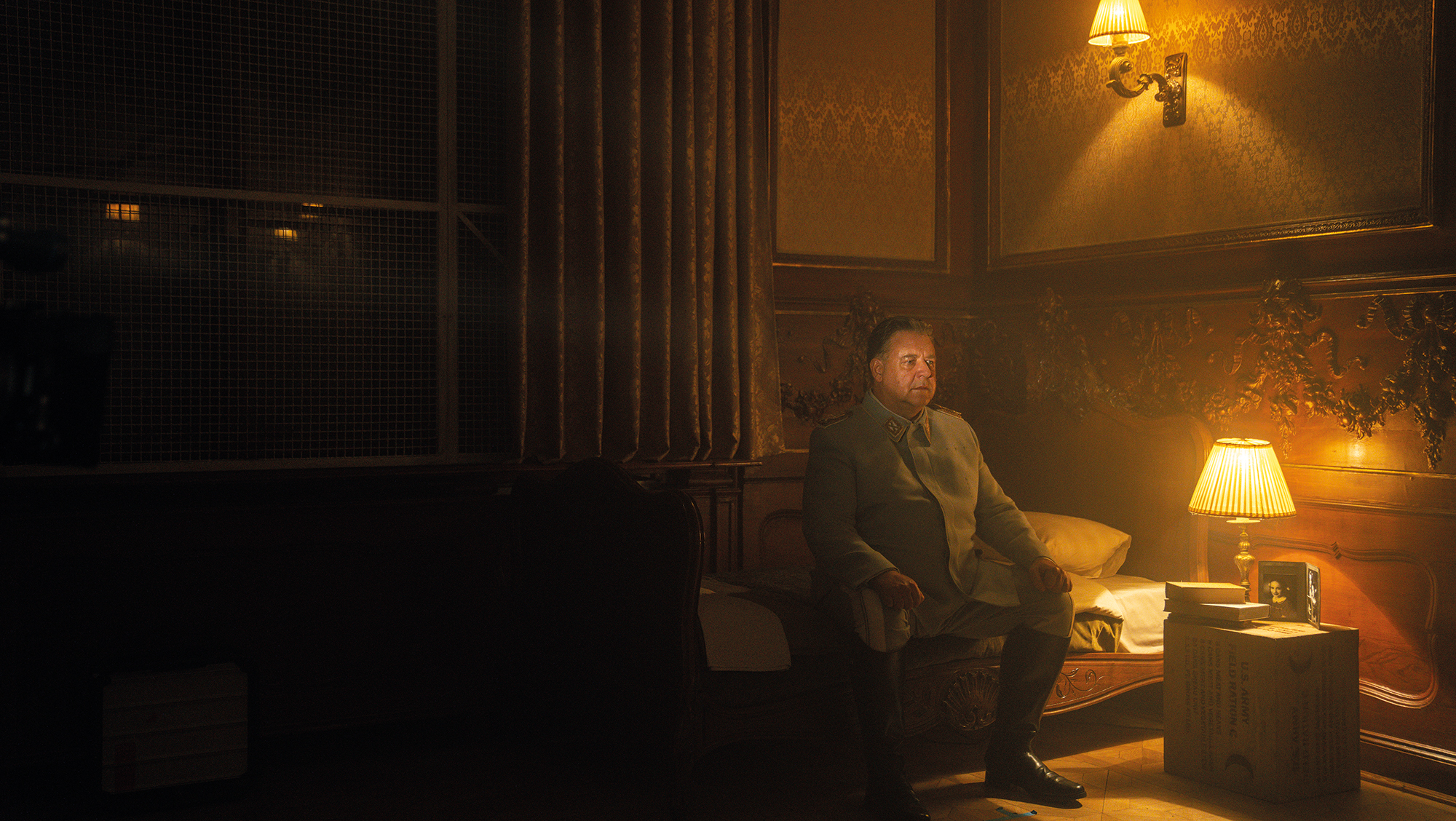
Nuremberg is one of those films that falls short on everything it wants to be and everything it could be. It’s a historical drama, set just before the trials, where an American psychiatrist (Rami Malek) is charged with assessing whether Hermann Göring (Russell Crowe), Hitler’s second in command, is fit to stand trial and to ascertain what his defence might be. This should be electric and terrifying and take us inside the Nazi mind. In other words, I had expected a tense two-hander. But it’s serviceable rather than inspired, plodding rather than tense, its running time (two and a half hours) trying. (Keep a Red Bull to hand.) It also takes some horrible missteps. Mrs Göring, sympathetic? Please.
Written, directed and produced by James Vanderbilt, and based on the non-fiction book by Jack El-Hai, the film is a tale of two halves with a tonal switch so jarring in the middle you may incur whiplash. It opens with Göring being chauffeured in his Mercedes through an Austrian wasteland, surrendering to the Allies by commanding them to carry his luggage. He certainly had chutzpah – he’d already generously offered to help the Allies form a new government. He is also very fat. (Crowe put on substantial weight for the role.)
We meet the psychiatrist Douglas Kelley who is travelling to Nuremberg by train. He hits on a fellow passenger, a beautiful young woman who will be attending the trial as a journalist. This is an invented character but I suppose you sometimes have to stray from the source material if your film would otherwise lack a beautiful young woman. The other main players are American supreme court justice Robert Jackson (Michael Shannon), who campaigned to have the top Nazis tried rather than executed, and Sgt Howie Triest (Leo Woodall), who is Kelley’s translator and who reveals something about himself right at the end that should have become apparent much earlier. Göring may be manipulative, but Vanderbilt plays us too.
The heart of the film should be the push and pull between Kelly and Göring as Kelley attempts to fathom what makes him tick. But these are the scenes that fall most egregiously short. So taken in by Göring’s charisma is he that Kelley can’t seem to see that Göring is playing mind games – genial one minute, malevolent the next. I couldn’t help but wonder about Kelley’s intellect. He also befriends Mrs Göring (Lotte Verbeek), who is shown in an entirely compassionate light – how she suffers, while her unrepentant husband awaits his fate. This is the woman, we must remember, who was known as ‘the first lady of the Third Reich’, served as Hitler’s hostess at many state functions, and lived a life of wealth and luxury, most of it appropriated from Jews. Kelley seems incurious about any of this, as does the film.
The first half is often comic. One fellow prisoner is Rudolf Hess (Andreas Pietschmann) who is feigning amnesia, and whose backstory is a farce. When Göring and other Nazi leaders are subjected to Rorschach tests, it’s done for laughs. But the second half is the trial itself, where real footage from the concentration camps is shown. It’s so horrifying it makes everything else feel phoney. This is the moment when the penny finally drops for Kelley and he sees that Göring is a monster and not his pal. Well done.
It serves as a decent enough history lesson. And it’s watchable. The message? That evil is within us all. But all the characters could have been sharper. Crowe, bursting from the seams of his Luftwaffe uniform, is at least physically mesmerising. But you may still need a Red Bull or two.








Comments